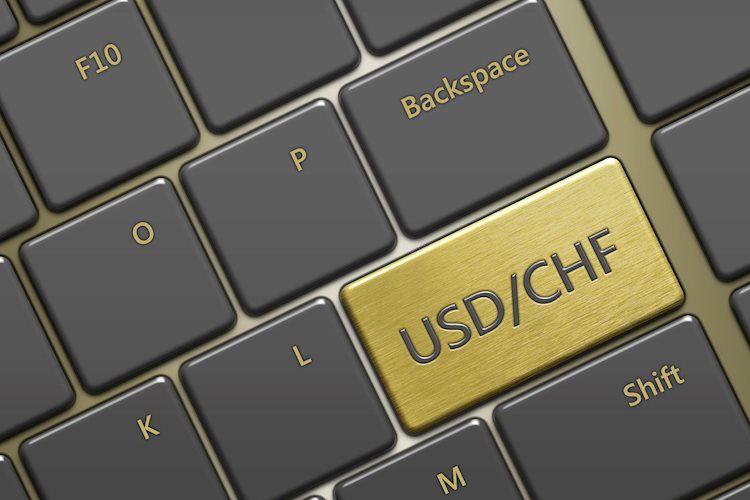The USD/CHF pair has broken its four-day winning streak, trading around 0.8510 during Friday’s Asian session. The Swiss Franc (CHF) has received support from safe-haven flows amid rising tensions in the Middle East. US President Joe Biden mentioned that the United States is in talks with Israel regarding potential strikes on Iran’s Oil infrastructure, adding to the uncertainty in the region. Israeli Prime Minister Benjamin Netanyahu warned that Iran would pay a heavy price for recent attacks, which reportedly involved the launch of at least 180 ballistic missiles at Israel. This has led to increased demand for the Swiss Franc as investors seek safety in uncertain times.
The CHF faced downward pressure following weaker-than-expected inflation data released on Thursday. The data has raised expectations of dovish policymakers advocating for a 50 basis point rate cut by the Swiss National Bank (SNB) in December. The SNB had already lowered the key interest rate by 25 basis points for the third consecutive time, signaling a more accommodative monetary policy stance. Switzerland’s Consumer Price Index rose 0.8% year-over-year in September, down from market expectations and August’s figure of 1.1%. Additionally, the monthly inflation rate dropped by 0.3%, exceeding forecasts after remaining flat in August.
The US Dollar (USD) has also experienced downward pressure amid subdued US Treasury yields. The US Dollar Index (DXY) trades around 101.90, with the 2-year and 10-year yields on US Treasury bonds standing at 3.70% and 3.845, respectively. Federal Reserve Bank of Chicago President Austan Goolsbee reiterated that interest rates need to come down over the next year by “a lot.” This further adds to the bearish sentiment surrounding the USD as policymakers signal a dovish stance to support the economy.
The Swiss Franc (CHF) is Switzerland’s official currency and is among the top ten most traded currencies globally. Its value is determined by various factors such as market sentiment, economic health, and actions taken by the Swiss National Bank (SNB). The CHF was pegged to the Euro (EUR) between 2011 and 2015, causing a significant increase in value when the peg was removed. The CHF is considered a safe-haven asset, with investors buying the currency in times of market stress due to Switzerland’s stable economy, strong export sector, and neutrality in global conflicts.
The Swiss National Bank (SNB) meets four times a year to decide on monetary policy. The bank aims for an annual inflation rate of less than 2% and adjusts its policy rate accordingly. Macroeconomic data releases in Switzerland are crucial for assessing the state of the economy and can impact the CHF’s valuation. Switzerland’s dependence on the neighboring Eurozone economies also plays a significant role in the Swiss Franc’s performance, with high economic growth and stability in the Eurozone benefiting the CHF.
In conclusion, the USD/CHF pair has halted its winning streak as the Swiss Franc receives support from safe-haven flows amid rising Middle-East tensions and weaker-than-expected inflation data. The US Dollar faces downward pressure from subdued US Treasury yields and dovish signals from policymakers. Understanding the factors influencing the Swiss Franc’s performance, such as economic data releases, monetary policy decisions, and Switzerland’s relationship with the Eurozone, is crucial for traders and investors. As global events continue to unfold, the CHF’s status as a safe-haven asset and the SNB’s monetary policy decisions will play a key role in shaping the currency’s future movements.











